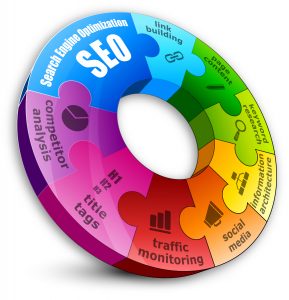What Is A On-Page SEO And Off-Page SEO?
Search engine optimization (SEO) is a process of optimizing a website to improve its visibility and ranking in search engine results pages (SERPs). SEO can be divided into two main categories: on-page SEO and off-page SEO. While both are important for a successful SEO strategy, they are distinct in their approach and implementation.
(Looking for”Local business directories“? Contact us Today!)

On-page SEO refers to the optimization techniques that are applied on a website itself to improve its search engine ranking. This includes optimizing the website’s content, HTML tags, and overall structure. The primary goal of on-page SEO is to make the website more user-friendly and search engine-friendly, by ensuring that it contains relevant keywords, structured content, and a clear website architecture. Some of the key components of on-page SEO include:
- Keyword research: Keyword research involves identifying the most relevant and high-traffic keywords related to the website’s content and industry.
- Title tags: Title tags are HTML tags that appear in the header of a web page and provide a brief description of the page’s content. Optimizing title tags with relevant keywords can help improve a website’s ranking on SERPs.
- Meta descriptions: Meta descriptions are short descriptions that appear beneath a page’s title tag on search engine results pages. Optimizing meta descriptions with relevant keywords and the compelling copy can help improve click-through rates and attract more traffic to a website.
- Header tags: Header tags (H1, H2, H3, etc.) are HTML tags that are used to structure a page’s content. Optimizing header tags with relevant keywords can help improve a website’s search engine ranking.
- Internal linking: Internal linking involves linking to other pages within the same website. This can help improve a website’s structure and make it easier for search engines to crawl and index its pages.
Off-page SEO, on the other hand, refers to the optimization techniques that are applied outside of a website to improve its search engine ranking. This includes activities such as link-building, social media marketing, and influencer outreach. The primary goal of off-page SEO is to improve a website’s authority and credibility, by building high-quality backlinks and increasing its online visibility. Some of the key components of off-page SEO include:
- Backlinks: Backlinks are links from other websites that point to a website. Backlinks are an important factor in determining a website’s authority and credibility, and can significantly impact its search engine ranking.
- Social media marketing: Social media platforms, such as Facebook, Twitter, LinkedIn, and Instagram, provide a way to reach a wider audience and generate backlinks to a website.
- Brand mentions: Brand mentions refer to instances where a website or brand is mentioned on other websites, social media platforms, or online directories. Even if a mention doesn’t include a link back to the website, it still provides exposure and can help establish a website’s reputation and authority.
- Influencer outreach: Influencer outreach involves reaching out to influencers and other individuals with a large following on social media and asking them to promote a website’s products or services.
- Online directories: Online directories, such as Yelp and Google My Business, allow businesses to list their products and services, as well as their contact information, on platforms that people are already using to find local businesses.
In conclusion, on-page SEO and off-page SEO are two important components of any successful SEO strategy. While on-page SEO focuses on optimizing a website’s content, structure, and HTML code, off-page SEO involves activities such as link building, social media marketing, brand mentions, and influencer outreach. By implementing effective on-page and off-page SEO techniques, businesses can improve their website’s ranking and visibility on SERPs, attract more traffic to their website, and ultimately drive more sales and revenue.

Recent Comments